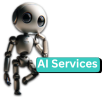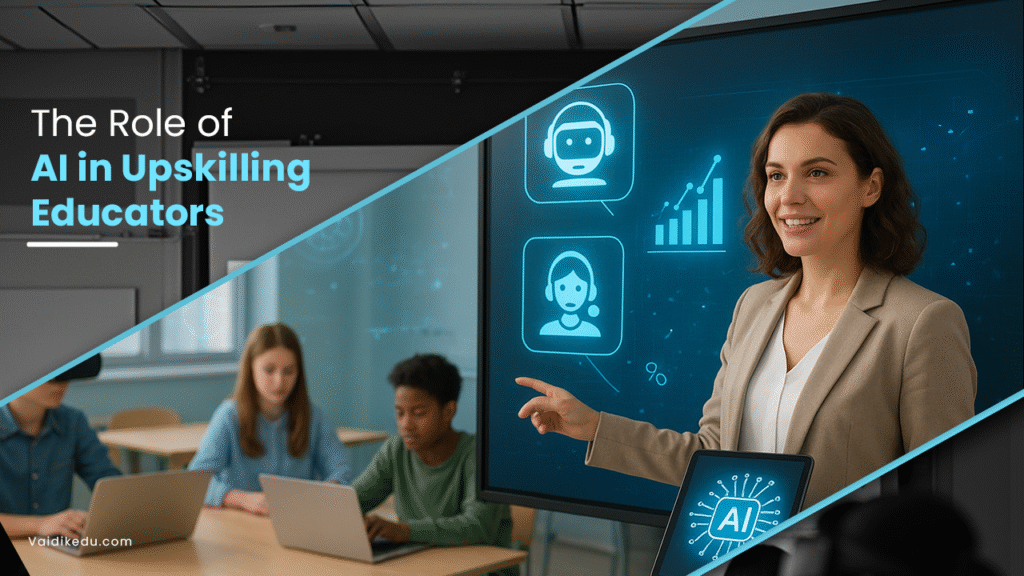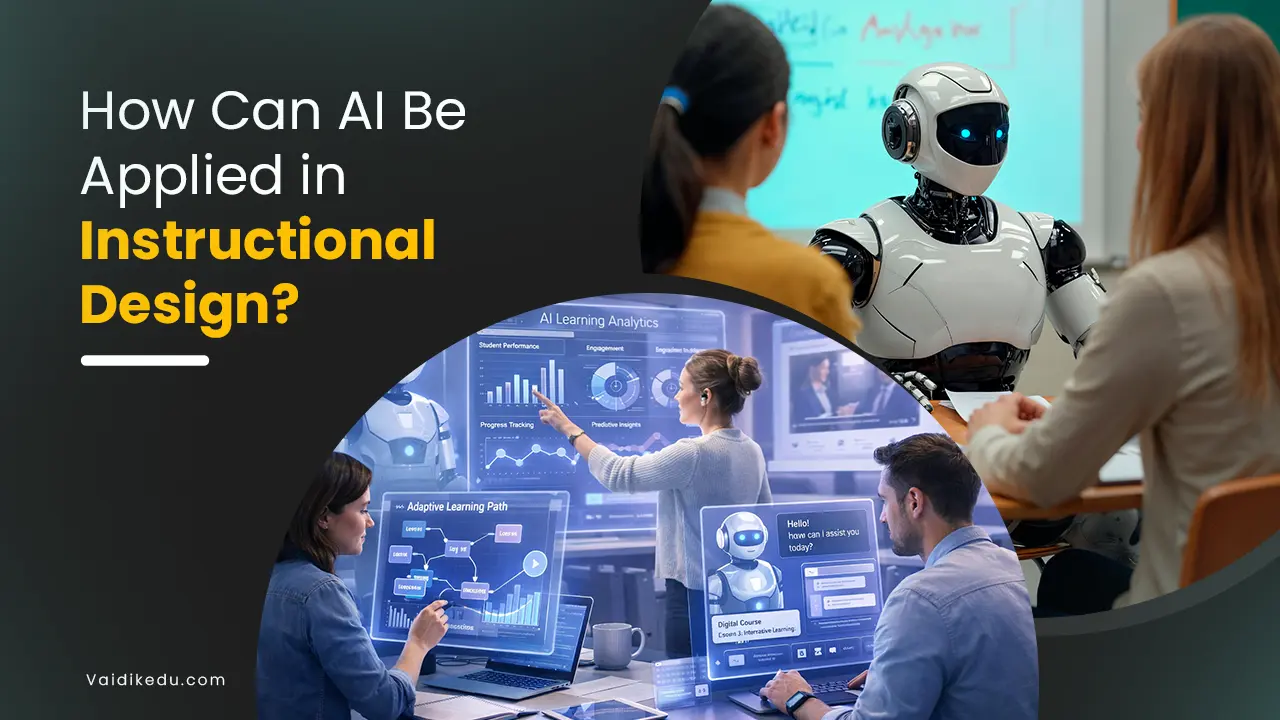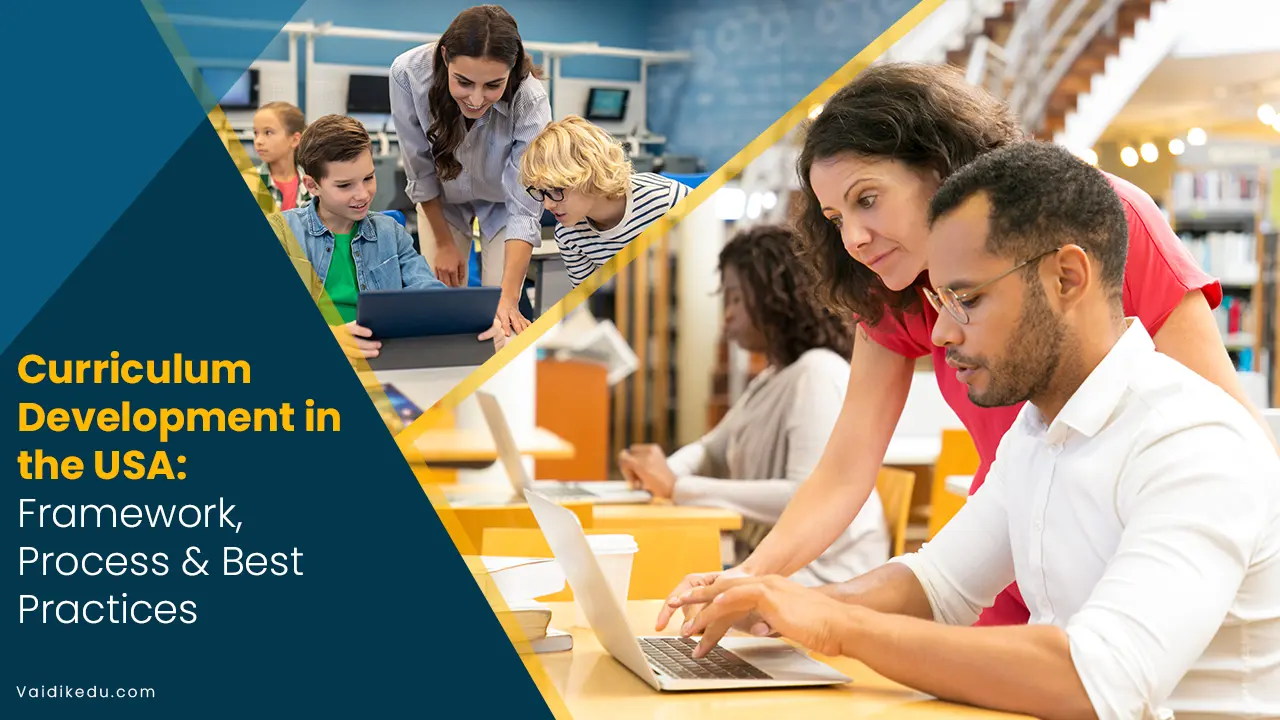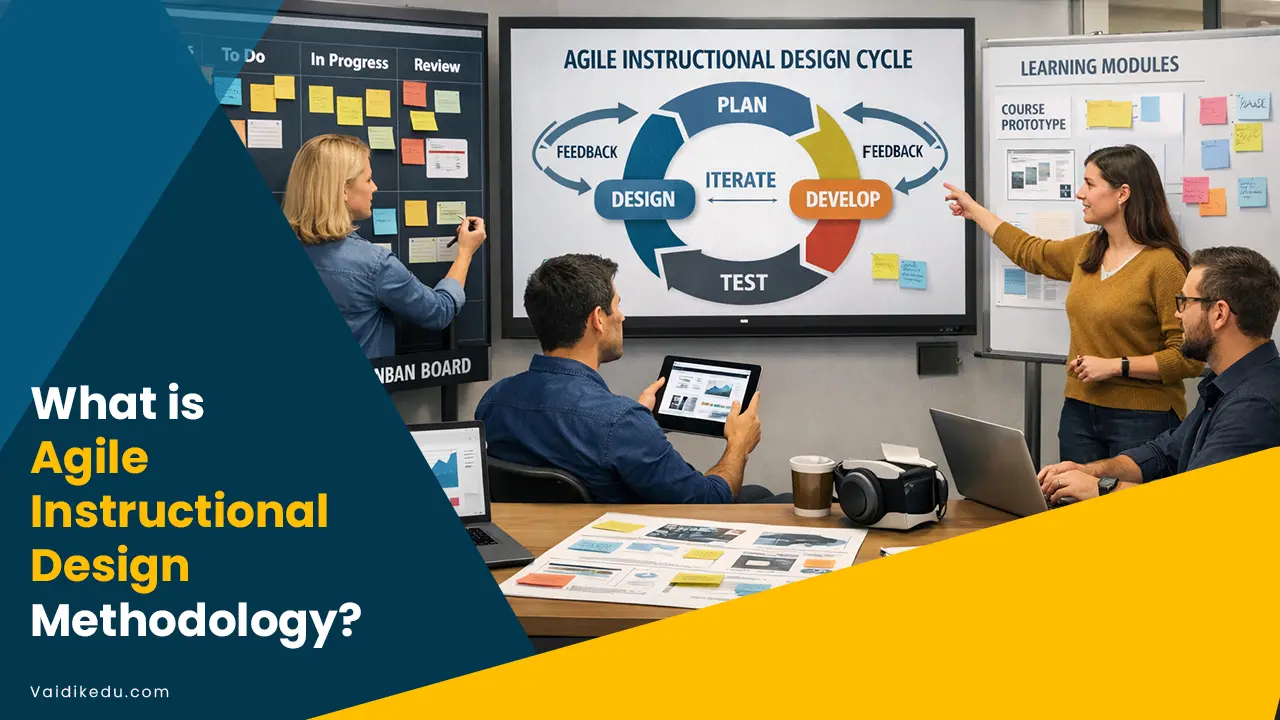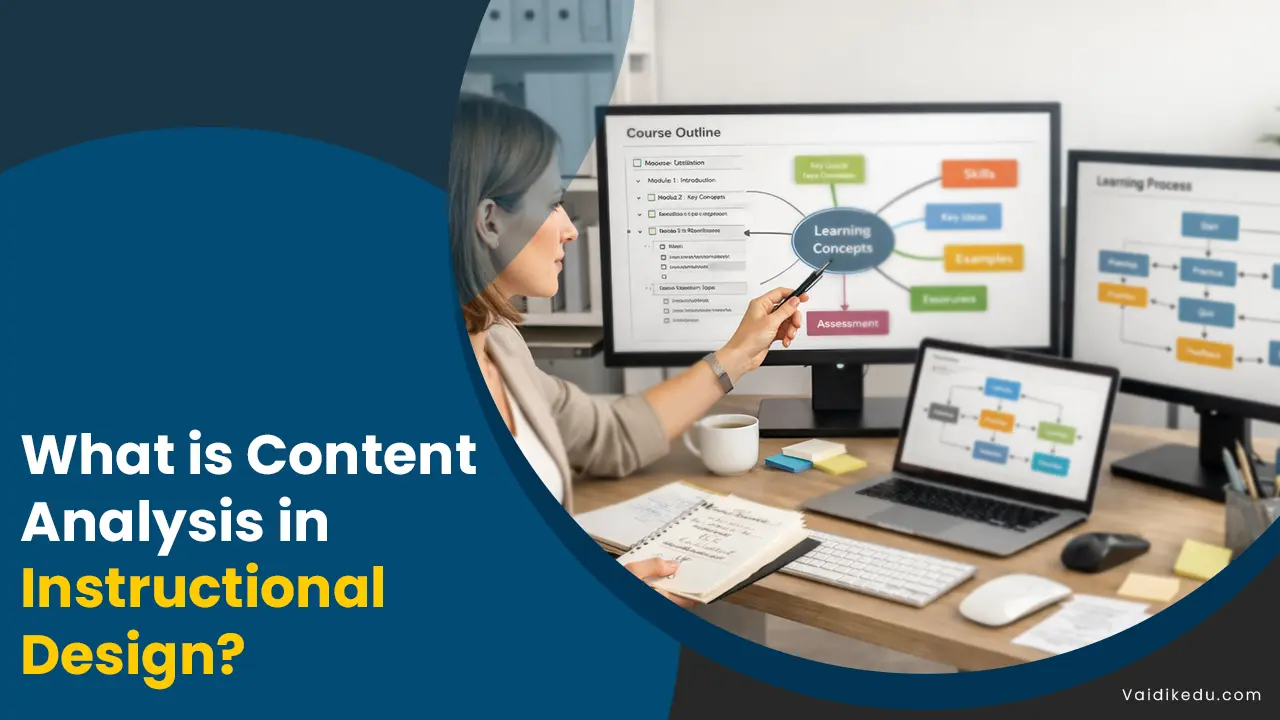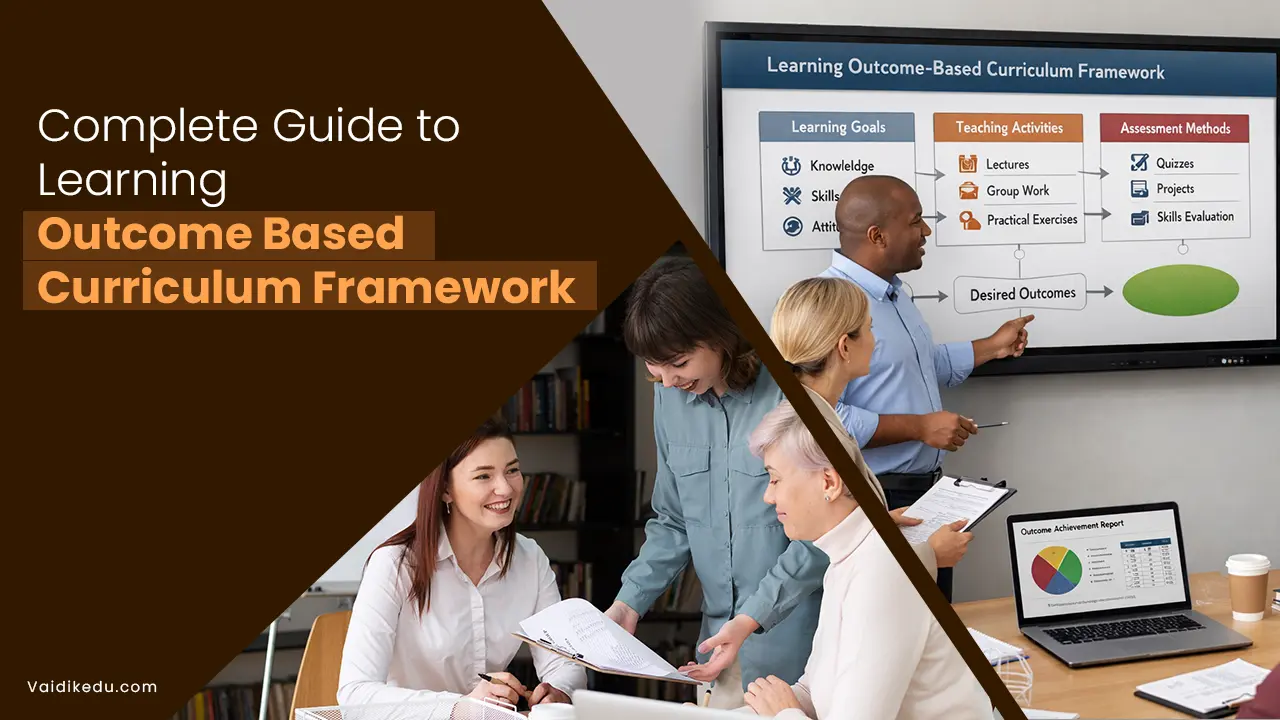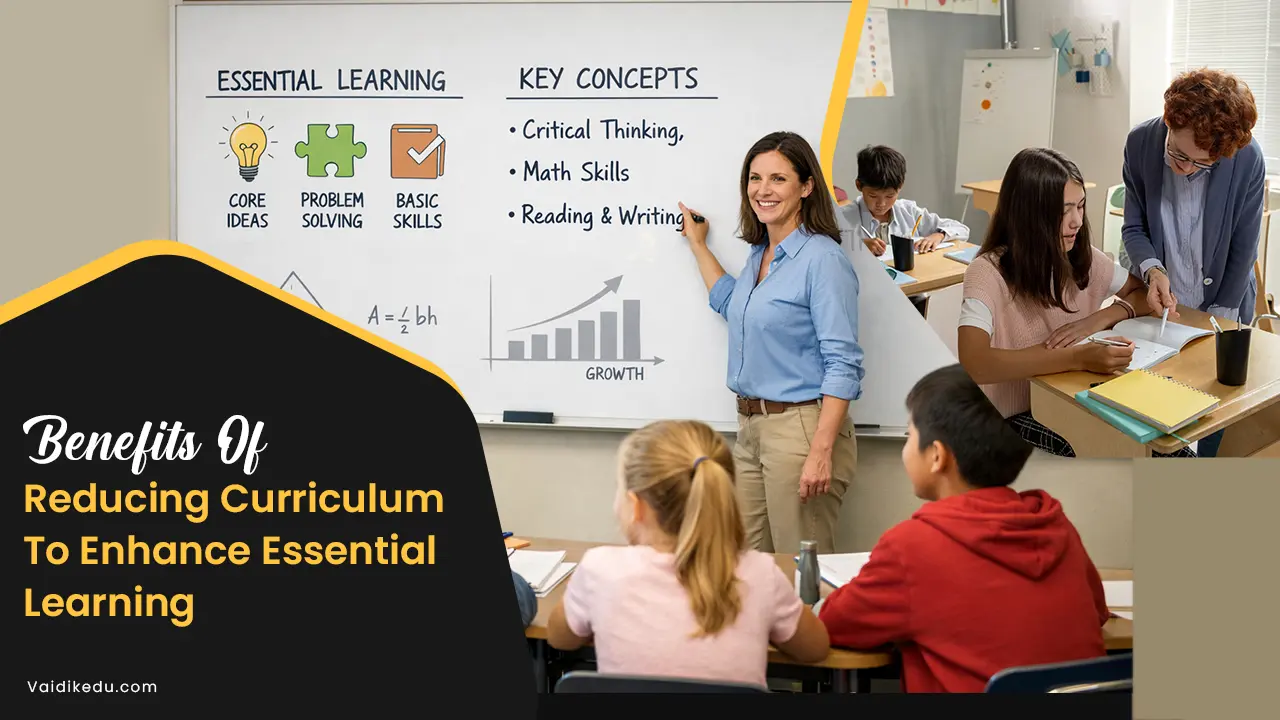In the ever evolving twenty-first century, artificial intelligence has developed into a major transformative force. Its effects are not confined to one particular field. It made its mark in industrial, technical ,and educational sectors overall. For educators, there is a constant need for upskilling if they have to stay relevant, especially in this fast-changing world.
AI provides a major aid for them in this regard. Teaching methodologies can be improved, and the output of students can be enhanced. All these things greatly help educators adapt to the modern education system. AI courses and eLearning tools improve personalized learning experiences.
Proper feedback can be generated with this technique. Knowledge gaps can also be reduced to a great extent. Traditional learning methods are getting fast replaced by modern technology-based AI tools. This blog is based on how artificial intelligence helps in upskilling the entire education sector.
What is AI
AI or artificial intelligence is a simulation of human intelligence with the help of a computer system.
It is being used in day-to-day life. This includes voice assistants like Alexa and Siri in smartphones.
What is its importance
AI technologies in the education sector involve complex algorithms that are needed to analyze large data and execute functions. The major function is to provide a personalized learning experience. Individualized learning, constant feedback, and augmented and virtual reality are all part of it.
AI chatbots and virtual instructors provide quick help in the learning process. Responding to questions and clearing doubts uplifts the engagement of learners in a better manner.
What is The Need For Upskilling Educators
The demands on educators have significantly changed over the years. Other than providing knowledge, educators are expected to nurture creativity and digital thinking among their students. The collaborations with technology in classrooms, personalized learning, and the growing importance of data-based tutoring have necessitated educators to have a new set of skills.
Generally, traditional development programs could not nurture any of these skills properly. Most programs are like a size approach. Meaning it was the same for all. There was no diversity hence the individual requirements of educators are often ignored.
Also, the lack of time, shortage of resources, and lack of follow-up support have further aggravated the case. AI could provide solutions to all of these problems. It provides personalized and flexible solutions to upskill educators.
AI-Powered personalized learning
The biggest contribution of AI in education is the provision of personalized learning experiences. When a student receives personalized instruction, teachers can benefit similarly from AI as well. Both could determine their particular learning needs and receive training in the same fashion.
AI platforms can evaluate teaching styles, class management, and knowledge in subject matters. It can even assess an educator’s strengths and weaknesses. This assessment helps these platforms to provide different targeted courses, articles, or videos for different educators. This helps them to work on their weak points.
If an educator wants to have project-based learning in the class; she/he can access the content and simulations organized by AI. Also, AI systems may adapt to an educator’s progress, offering real-time feedback. This makes professional development relevant and effective.
Enhancement of Teaching Practice Through AI
Another way AI is changing the education sector is by how educators upgrade their teaching practices. AI-powered virtual coaching can simulate classes for teachers. They could practice and improve their teaching skills without any stress. In such simulations, teachers can deal with different learning styles and management of disruptive behaviors.
Furthermore, AI can give insights into teaching effectiveness. It is through classroom interaction, student engagement, and performance data. For example, speech recognition technology can be used to evaluate the questioning and response patterns of educators.
A sentiment analysis tool can be used to gain insights about reactions from students. These methods will empower teachers to make concrete decisions on their teaching methods and adapt quickly. All these are done to maximize the outcomes of student learning.
Automating Administrative Tasks
The amount of time most instructors spend is mainly on marking assignments, handling attendance, and planning lessons. In these scenarios, AI is quite helpful. AI could automate all these tasks. This reduces the workload of educators and saves a lot of time. Time that could be used for student interactions.
For example, automated grading systems would quickly grade a student’s work and give appropriate feedback. Other tools like lesson planning, offer resources and activities based on curriculum standards.
These could be done within minutes of effort rather than taking hours. Reducing administrative burden enables teachers to dedicate more time towards instructional practice improvement.
Smoothening Collaborations And Networking
Professional growth mostly occurs in a collaborative learning environment. With AI, educators could connect through online communities. Most of these platforms exploit AI algorithms that match the fields of teachers. Then, they engage in sharing best practices, cross-ideas development, and developing projects together.
AI can bridge the knowledge gap among instructors. It can also create mentorship opportunities by providing experienced educators. Virtual mentoring, powered by AI, can analyze interactions, suggest topics, and track progress. All these can lead to better productivity in learning outcomes.
Impartial Professional Development
Being impartial is very important in education. Be it an instructor or a student. AI has the ability to bridge gaps in professional development opportunities. In remote areas, educators often do not have access to high-quality training programs.
With AI-powered platforms, professional edu- resources can be delivered to teachers irrespective of location. This ensures that every educator has an opportunity to upskill.
AI can also help identify systemic inequities. It could analyze the data on participation in these professional development programs. This helps in bringing up policies that would ensure proper support and training for all educators.
Challenges
Even though the potential of AI in this field is huge, there exist challenges like ethical issues. One of them includes privacy and data security as many AI applications are not excluded from requiring access to sensitive information about educators and learners. There is a need for strong data protection measures and policies for educators to trust these platforms even more.
Also at the same time, education must not simply focus on these technical aspects. The human element in teaching is still an unmatched thing. Professional development should be a balance of both human and technology-based teaching.
The role of AI in upskilling educators will expand further at the current rate. Technologies such as natural language processing and machine learning will provide even more advanced tools for professional development. For instance, AI-driven VR platforms can create proper real-time training experiences. Here educators can practice teaching in realistic, high-stakes scenarios.
AI can transform the culture of lifelong learning for educators. It can make professional development more accessible and engaging. This could even inspire many to take up continuous learning as part of their careers. This will benefit educators but also improve the quality of education for students.
Conclusion
The use of AI in educator’s upskilling can lead to a massive change in professional development. It offers individualized learning, refining instruction, automation of administration work, and social networking opportunities.
All these enhance the capacities of educators to adapt to new developments in education. At the same time issues like equality, privacy, and ethical problems should be addressed when collaborating with AI in educators’ training.
The future is bright as we look ahead with the partnership between AI and human innovation. This combination promises to transform education in a much better way.
Equipping educators with the tools and skills they need to thrive, will definitely shape the future. It ensures that each student receives a good-quality education. Educators and technology developers must work together to utilize the power of AI in a responsible manner.
Frequently Asked Questions
AI can analyze an educator’s teaching practices and identify areas for improvement. It can also recommend customized learning resources like courses, articles, or videos. This provides dynamic professional growth.
AI-powered grading systems, lesson planning tools, and attendance management software could save a lot of time. Providing more time for educators to teach and self-improvement.
AI-based platforms can connect educators with similar objectives or challenges. This provides opportunities to share best practices, collaborate on projects, and mentorship roles.
Key concerns here are data privacy, bias-free AI recommendations, and the human touch in teaching. Proper security measures should be implemented for it.

